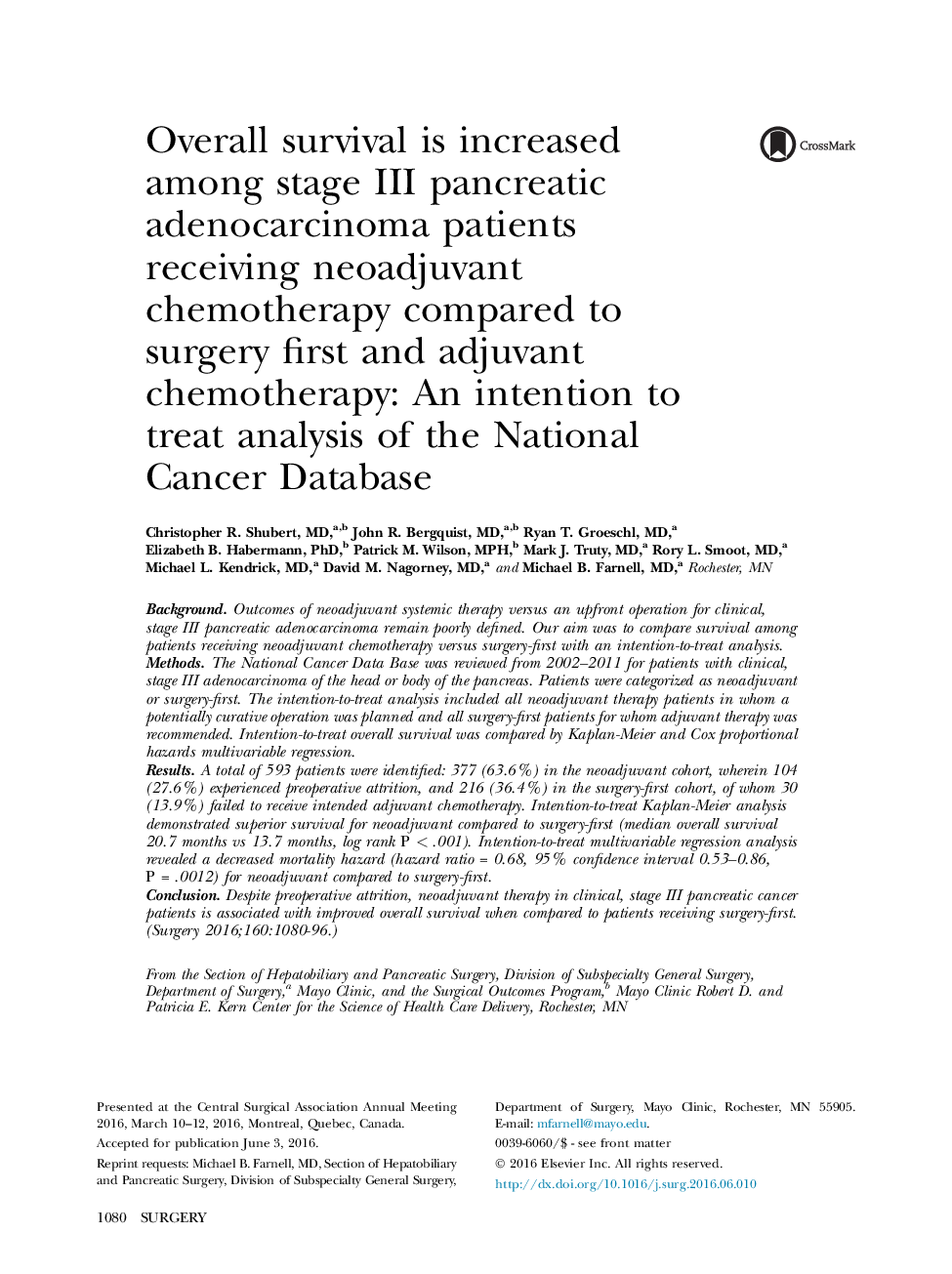| Article ID | Journal | Published Year | Pages | File Type |
|---|---|---|---|---|
| 4306384 | Surgery | 2016 | 17 Pages |
BackgroundOutcomes of neoadjuvant systemic therapy versus an upfront operation for clinical, stage III pancreatic adenocarcinoma remain poorly defined. Our aim was to compare survival among patients receiving neoadjuvant chemotherapy versus surgery-first with an intention-to-treat analysis.MethodsThe National Cancer Data Base was reviewed from 2002–2011 for patients with clinical, stage III adenocarcinoma of the head or body of the pancreas. Patients were categorized as neoadjuvant or surgery-first. The intention-to-treat analysis included all neoadjuvant therapy patients in whom a potentially curative operation was planned and all surgery-first patients for whom adjuvant therapy was recommended. Intention-to-treat overall survival was compared by Kaplan-Meier and Cox proportional hazards multivariable regression.ResultsA total of 593 patients were identified: 377 (63.6%) in the neoadjuvant cohort, wherein 104 (27.6%) experienced preoperative attrition, and 216 (36.4%) in the surgery-first cohort, of whom 30 (13.9%) failed to receive intended adjuvant chemotherapy. Intention-to-treat Kaplan-Meier analysis demonstrated superior survival for neoadjuvant compared to surgery-first (median overall survival 20.7 months vs 13.7 months, log rank P < .001). Intention-to-treat multivariable regression analysis revealed a decreased mortality hazard (hazard ratio = 0.68, 95% confidence interval 0.53–0.86, P = .0012) for neoadjuvant compared to surgery-first.ConclusionDespite preoperative attrition, neoadjuvant therapy in clinical, stage III pancreatic cancer patients is associated with improved overall survival when compared to patients receiving surgery-first.
